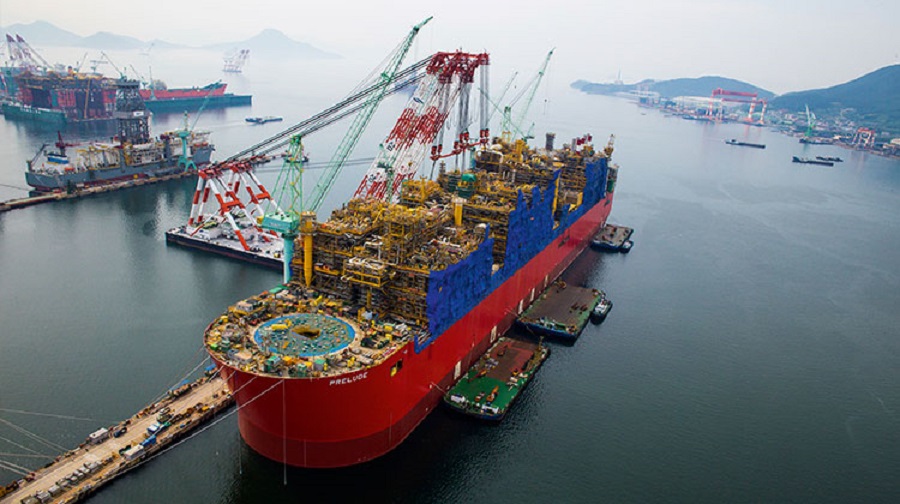Only two weeks ago, the Department of Petroleum Resources (DPR) licensed UTM Offshore Limited, a Nigerian indigenous oil and gas company to establish a Floating Liquefied Natural Gas (FLNG) project- the first of its kind in Nigeria.
The facility will process 176 mmscf of gas per day and is expected to change the face of natural gas development in Nigeria. In lay terms, an FLNG is an LNG plant floated on water rather than onshore, usually for its comparative advantages – primarily its ability to access stranded gas volumes.
As the UTM deal could transform the face of Nigeria’s natural gas market, it is worth examining if FLNGs are the future and whether more companies – and indeed investors – should be looking this way, or not. The FLNG technology is relatively new, with the first FLNG launched in May 2011 by Shell. Shell’s Prelude in West Australia is the world’s largest offshore floating facility ever built, with enough steel to build 35 Eiffel Towers.
READ: N250bn to be spent to fund compressed Natural Gas infrastructure
While the project is ambitious, its failure to achieve first shipment of gas on schedule as well as the other challenges that plagued it did not do much to boost the confidence of prospective investors/operators. Regardless of these setbacks, it is interesting to see that various other FLNG projects took off shortly afterward. These include the Hilli Episeyo in Cameroon- Africa’s first FLNG, the PFLNG Satu operated by Petronas in Malaysia, Mozambique’s Coral South and the Fortuna moored at Equatorial Guinea.
The big question is, have FLNG’s come as the future of natural gas development? In deciding for an FLNG as against onshore LNG production or vice versa, various considerations arise. Perhaps an important one of these considerations is the novelty of the FLNG technology. As there are only few FLNGs currently operational and none which has operated for a ten-year stretch, it is difficult to adequately plan for risks that could occur on the high sea while an enormous vessel housing cryogenic liquefaction plants travels. Thus, having very few precedents presents a challenge.
READ: NNPC and other state oil companies risk wasting $400 billion on Oil and Gas investments
Furthermore, as technical designs of the FNLG have to match the weather, gas composition and metocean conditions for its contemplated routes, the extent of copycatting from prior constructions is restricted- instead a high level of specificity is required, for which no playbook may exist.
Additionally, FLNG projects might be subject to multiple safety certificates and requirements of several standardisation bodies across jurisdictions due to the high safety standards required for them. For instance, the Prelude’s offshore maintenance processes were condemned by the offshore regulator, NOPSEMA even after tens of billions of dollars were spent in its design.
However, reliance cannot solely be placed on the teething challenges faced by the Prelude, as subsequent FLNG projects have proved more successful, with shorter construction timelines and lower cost overruns. FLNG projects like the Coral South have been able to attract third-party financing (up to $4.7 billion) from a consortium of 15 international banks and 5 Export Credit Agencies (ECAs). This signifies that there is some benefit to be had in the FNLG business after all.
READ: FG to deliver 1 million vehicle conversion to autogas by end of 2021
We cannot also brush aside the numerous benefits and advantages FLNGs provide when compared with onshore production. Apart from the fact that FLNGs ensure that stranded gas is produced, they obliterate knotty issues of land rights and permits that have always been a challenge in developing oil and gas projects. Also, host community concerns which have often escalated to security threats are no longer a bother, since neither construction nor production takes place in any community.
FLNGs also eliminate the costs and concerns of decommissioning and abandonment of onshore installations as well as other forms of environmental pollution which affect host communities. Similarly, with no need for gas pipelines, breakwater and jetties, FLNGs reduce cost of construction. The extended FEED and EPC development phases are equally cut down as the regular delays from onshore construction are absent. The fact that it can also be moved to another field if production declines in one field is a big advantage.
READ: NCDMB says Nigerian Oil and Gas Park will be completed in Q4 of 2022
With pros and cons existing for these floating projects, it may be too early to make a call that they are the future of the natural gas market. With the Prelude just re-commencing shipment in January this year, stakeholders in the oil and gas industry are watching to see how this prodigy will prove naysayers wrong about FLNGs.
The technology and financing risks of FLNGs leave many grey areas, yet it is encouraging to see a Nigerian company wade into these waters – both literally and figuratively. It is hoped that the UTM project will take significant learning from the failings of the Prelude as well as the successes of the Hill Episeyo and Coral South in its neighbourhood which have secured financing and delivered on shipments so far.












